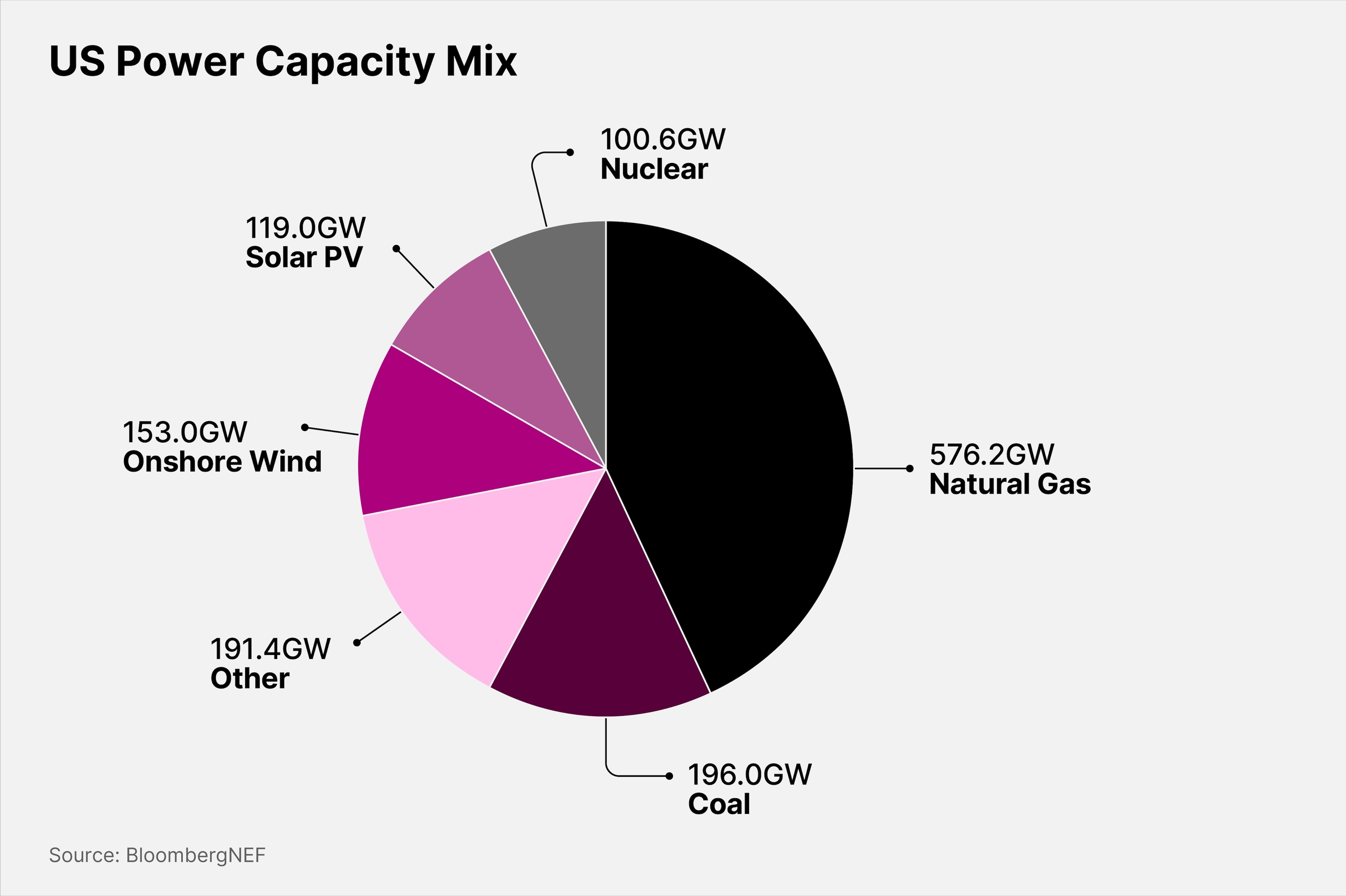Attitudes to nuclear power are changing at lightning speed, says Craig Bealmear, CFO of nuclear power company Oklo [OKLO].
“I’ve only been at Oklo a year and a half, but it feels like in that time the world’s gone from ‘Why nuclear?’ to ‘Why not nuclear?’ to ‘Nuclear now!’” he tells the latest OPTO Sessions.
In the past, many people assumed nuclear equaled unsafe, but both policymakers and the public are collectively adapting to a different mindset. “It’s actually one of the safest forms of energy,” Bealmear believes.
He argues that the benefits of nuclear far outweigh any risks, including its sustainability.
“Nuclear uses less inputs, steel, cement, land, than any other power source. If you think about what happens in terms of emissions from a coal-fired power plant or what happens around the carbon footprint of producing steel or producing cement, not only is nuclear extremely safe, but it’s very environmentally and carbon-friendly.”
The other thing that makes nuclear unique relative to other power sources, says Bealmear, is its reliability. “Our powerhouses will run 24/7. You’ve got a reliability factor that’s better than some of the other low-carbon alternatives, which is what has our customers so excited about Oklo.”
With power use surging thanks to artificial intelligence and data-center demands, the time is right for a nuclear future, says Bealmear.
Easing Nuclear Red Tape
Supporting the sector’s growth spurt are changes in regulation.
As of 2023, the US had approximately 100GW of installed nuclear power generation capacity.

In November 2024, former President Joe Biden outlined a roadmap for the US to triple nuclear power production by 2050. The current US administration is also visibly pro-nuclear, and many predict President Donald Trump will accelerate the industry’s prospects still further.
Bealmear notes the bipartisan gear shift towards support for nuclear energy.
“We’ve seen improvement in both the Democratic and the Republican Party to try to accelerate the delivery of nuclear. The fuel and land we were awarded was under the first Trump administration. Last year, the ADVANCE Act was passed and signed into law by the Biden administration. This puts accelerators around the approval process, which is run by the Nuclear Regulatory Commission (NRC) in the United States.”
The ADVANCE Act will reduce permit approval time for the small modular reactors (SMRs) Oklo specializes in, and reduce costs. “There are fees that have to be paid to the NRC for a permit, and every powerhouse needs a permit,” Bealmear explains. “Those fees are coming down.”
He adds Oklo has forged strong links with the NRC, which safeguards public health and safety, as well as the environment. “We are really proud of the working relationship that we have with the NRC. We have former NRC staff now working for Oklo.”
New Look for Nuclear
Oklo’s unique approach is a game-changer in the nuclear power industry.
Its SMRs, or powerhouses, come in 15, 50 or 75MW options, and require comparatively little space compared to the power plants of yore. This means customers can directly build and access their own power source. “The 15MW unit needs a little under two acres for the powerhouse. That’s including the safety perimeter. That is about the size of a European football pitch. The 50 and 75MW will need three to five acres, but there’s not a lot of land usage.”
Forget vast concrete monstrosities that dominate the landscape for miles. An appealing triangular design means Oklo’s powerhouses do not look like typical nuclear plants. “When I started, I would bring up a picture of the Oklo powerhouse on my phone and ask family and friends, what do you think this is? And I would get: ski chalet or church.”
Oklo’s reactors are also cooled by liquid sodium, not water, which means workers and local residents might sleep more easily. “If the neutron started to over-energize or speed up, what would happen is the natural law of thermodynamics, air would come into the reactor chamber and slow and shut the reaction down. It would shut itself down naturally as opposed to where a light-water reactor needs more water to come in to cool the reaction.”
Future Conversations
As the nuclear sector evolves, Bealmear says the conversations and challenges for Oklo will inevitably shift again. “When we get the company to the point of deploying five to 10 powerhouses a year, it will be more about how we can adequately allocate our people power to deploy five powerhouses a year. What do we do to deploy assets at that scale? That’ll be a different set of factors.”
In the future the discussion will move past debating nuclear’s pros and cons, and focusing instead on building the business.
“That’ll be a really exciting time to be the CFO of Oklo, too. When the discussion is just how quickly can you fill your order book and how quickly can you grow that revenue stream.”
Listen on Apple Podcast, Spotify or watch on Youtube.
Continue reading for FREE
- Includes free newsletter updates, unsubscribe anytime. Privacy policy





